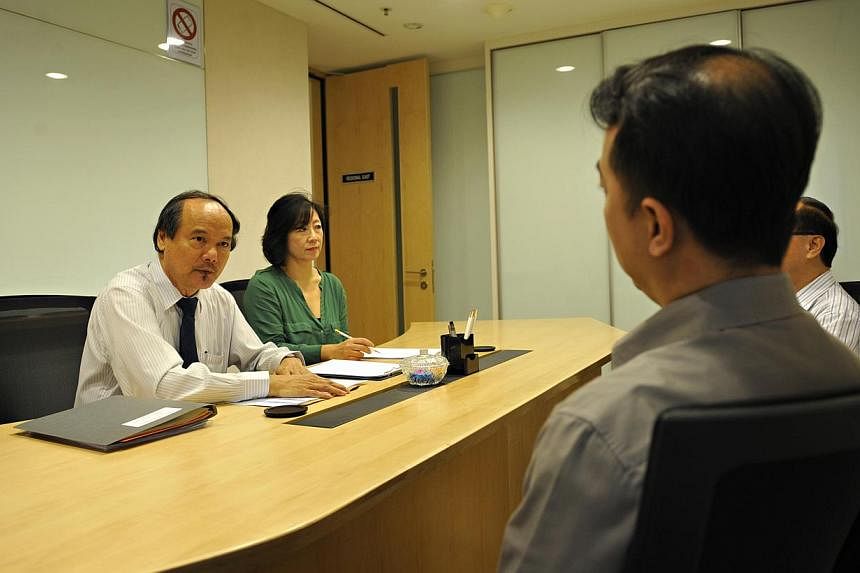Parliamentarians have recently voiced concern over "deadlocked" community disputes in which one party refuses to mediate a settlement.
While there have not been any recent neighbourhood disputes of the severity of the Everitt Road case in 2002, which ultimately ended up in the Subordinate Courts, some 70,000 complaints from neighbours, largely over noise problems, are received by public agencies each year.
The proposed Community Dispute Tribunal (CDT) seeks to "strengthen the framework for the management of community disputes" and present a viable channel for settling difficult cases between neighbours in conflict.
The CDT follows the establishment of the Community Mediation Centre (CMC) in October 1997 to mediate community disputes. Since 1998, the CMC has mediated in some 7,000 cases.
Despite the large number of reported disputes annually, however, less than 1 per cent turned up for CMC mediation. Of the 1,500 applications for dispute resolution registered by the CMC, at least one of the parties concerned failed to show up in 60 per cent of cases. The new tribunal is designed to address this problem.
Mediation is a voluntary forum where a neutral third party facilitates dispute settlement by getting the parties to work out mutually acceptable solutions and come up with an agreement. The proposed tribunal, in contrast, will have stronger powers to compel parties to attend mediation sessions and even arbitrate.
Orders made by the proposed CDT will be deemed to be equivalent to that made by a district court, and will be enforceable as such.
There are similar tribunals and dispute resolution forums in other communities overseas, such as New Zealand's community tribunal, Norway's Konflikt-rad and San Francisco's community boards. Each has its own problems.
The 450 community mediation centres in Norway, established since 1991, have been criticised for "becoming more like the institutions that they were supposed to be alternatives to", namely the court system, complete with an adversarial and adjudicatory process that tends to deepen conflict rather than heal relationships.
Singapore should have a model that culturally suits us. A good example is the one established here earlier - the Tribunal for the Maintenance of Parents (TMP).
In Singapore, the Maintenance of Parents Act, originally enacted in 1995, makes provision for the maintenance of parents by their children. The law established that a person "above 60 years of age and who is unable to maintain himself adequately… may apply to the tribunal for an order… (for) his children (to) pay… for his maintenance".
The Commissioner for Maintenance of Parents aims to help families resolve the parental maintenance disputes through mediation. If the matter is not resolved, then an application is filed at the TMP for arbitration. The law also allows the commissioner to escalate the case to the TMP if anyone refuses to attend.
This mediation-arbitration approach, which tries to mediate first and moves on to arbitration only if this does not work, is a softer and less costly process than going to court. Cases are largely kept out of the public eye, unlike court proceedings.
Most cases at the TMP are mediated, with a fairly successful settlement rate of around 80 per cent. Some of the estranged elderly parents and their adult children even go a step further to reconcile through the services provided by the TMP.
While it must be acknowledged that family disputes have different dynamics from neighbourly disputes - namely the presence of blood ties - the main impediment to resolving such cases is the refusal of one or both parties to openly discuss their grievances.
The proposed tribunal, much like the TMP, will provide the essential channel to bring disputants together. The involvement of neutral mediators in the discussion also helps parties focus on the issue at hand.
The approach by the TMP, as well as other tribunals such as the Small Claims Tribunal or the newly proposed Small Claims Employment Tribunal for all workers, seem to be viable avenues for dealing with grievances. The proposed Community Dispute Tribunal, with strong enforcement powers, will have every chance to help settle tough, nagging problems between neighbours and help them move on in life.
Restorative conflict resolution, whether community, victim- offender or civil in nature, should be the goal of a just and gracious society. Conflict is and always will be a part of life. In resolving conflicts, the silver lining is the possibility of stronger relationships.
It is our responsibility to ourselves and to one another to make our neighbourhood, as well as our country, a better place for all.
The writer is dean of the School of Human Development and Social Services at SIM University.

